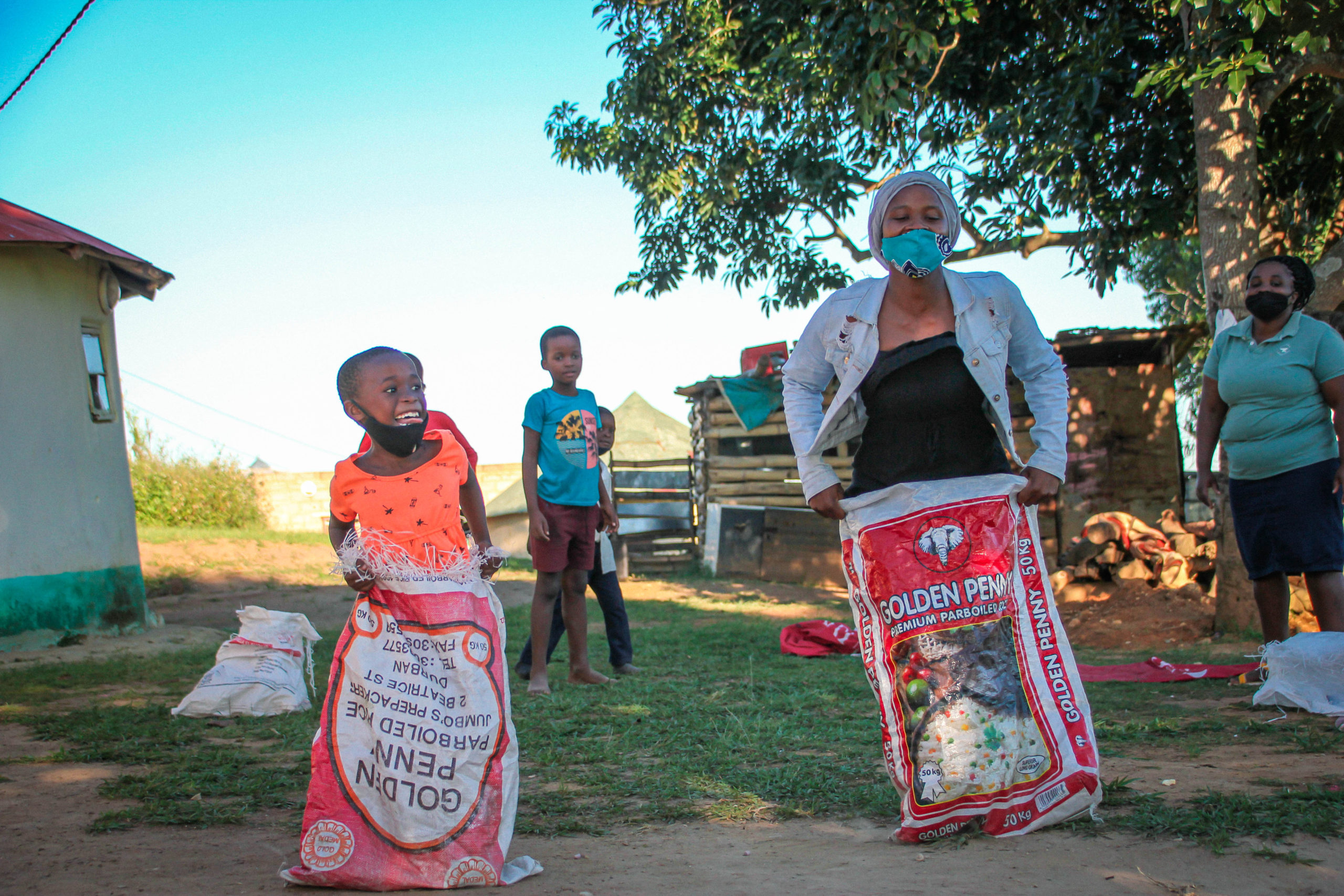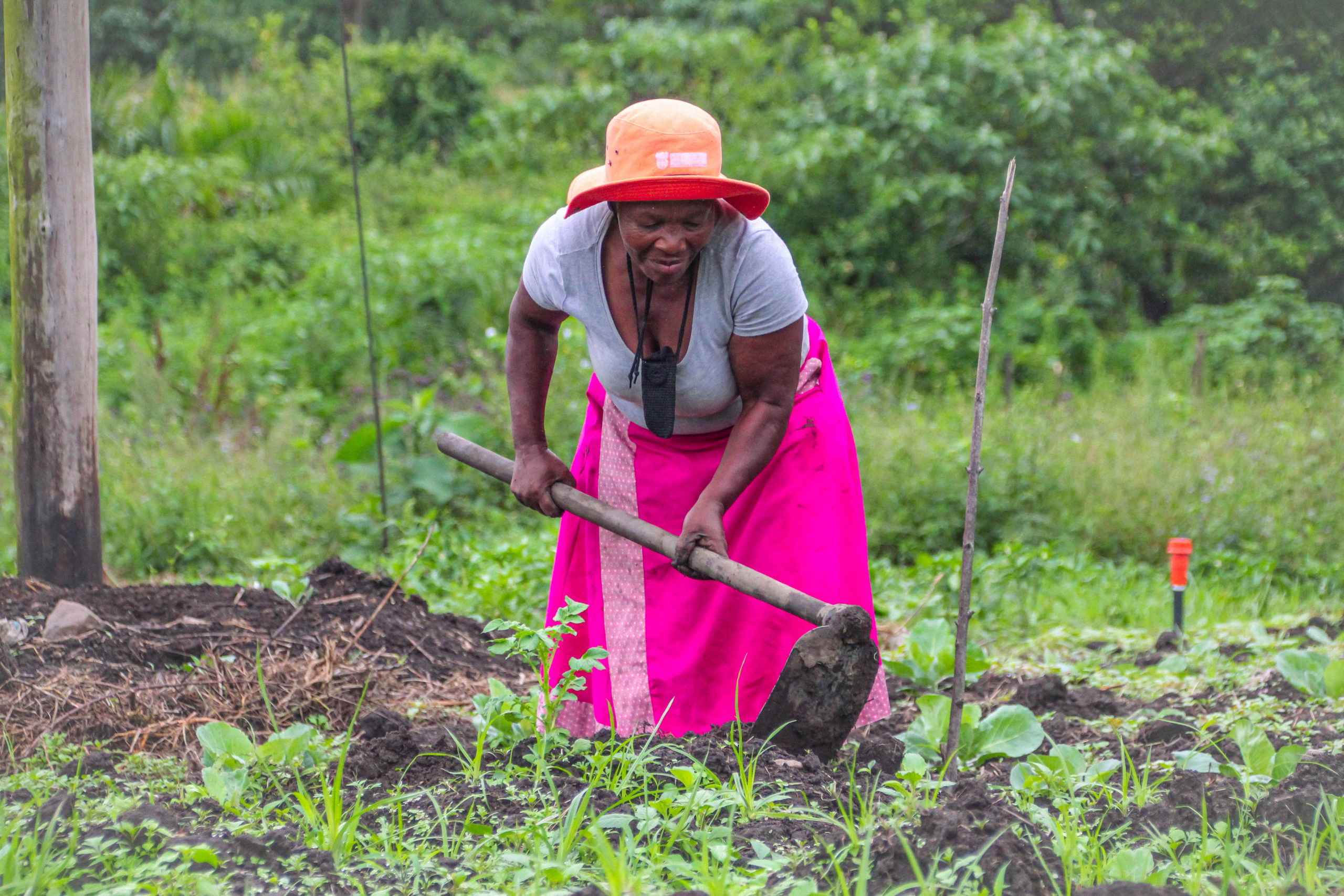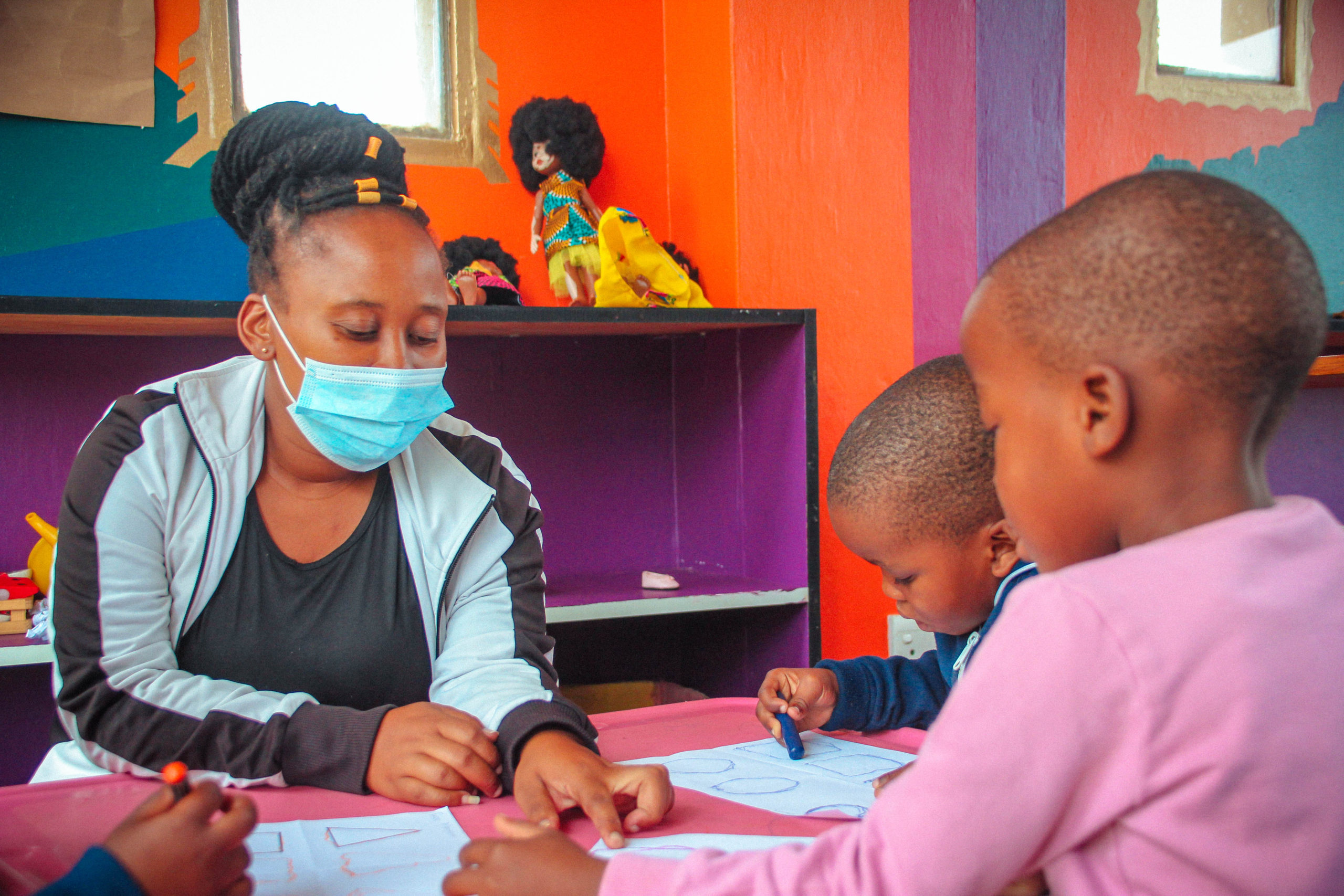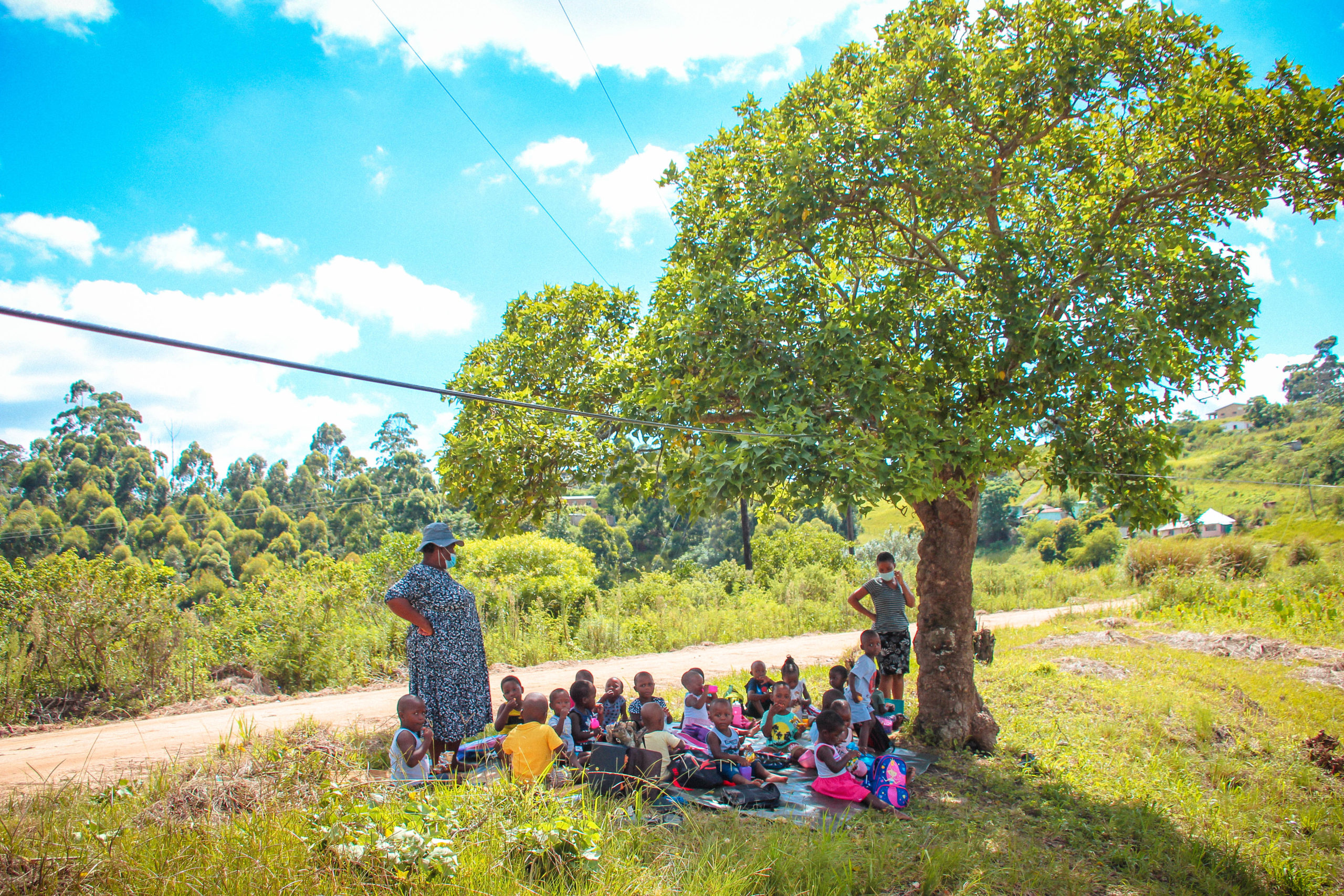Thanda opened its doors in 2008.
We saw the need for quality teaching and an opportunity of space for doing so in the empty classrooms of local schools after the last bell had rung each day.
We began with After-school Education, and our support has grown and evolved since then… especially in the face of a global pandemic!
Over the next few weeks, we look at what the Education Initiative and its Programmes look like NOW, and we share some insight gained through chatting to the Thanda team who are close to the programmes.
The first programme we will be diving into is Thandukwazi Outdoor Programme.
The name of our programme catering to Grades R to 3 is Thandukwazi. Translated to English, this means “Curious about learning.”
One of Thanda’s core missions is to instill a love of lifelong learning in every child who passes through our programmes. Being curious about learning, asking questions and finding out how the world around us works… is an essential building block in helping children grow into adults who love learning.
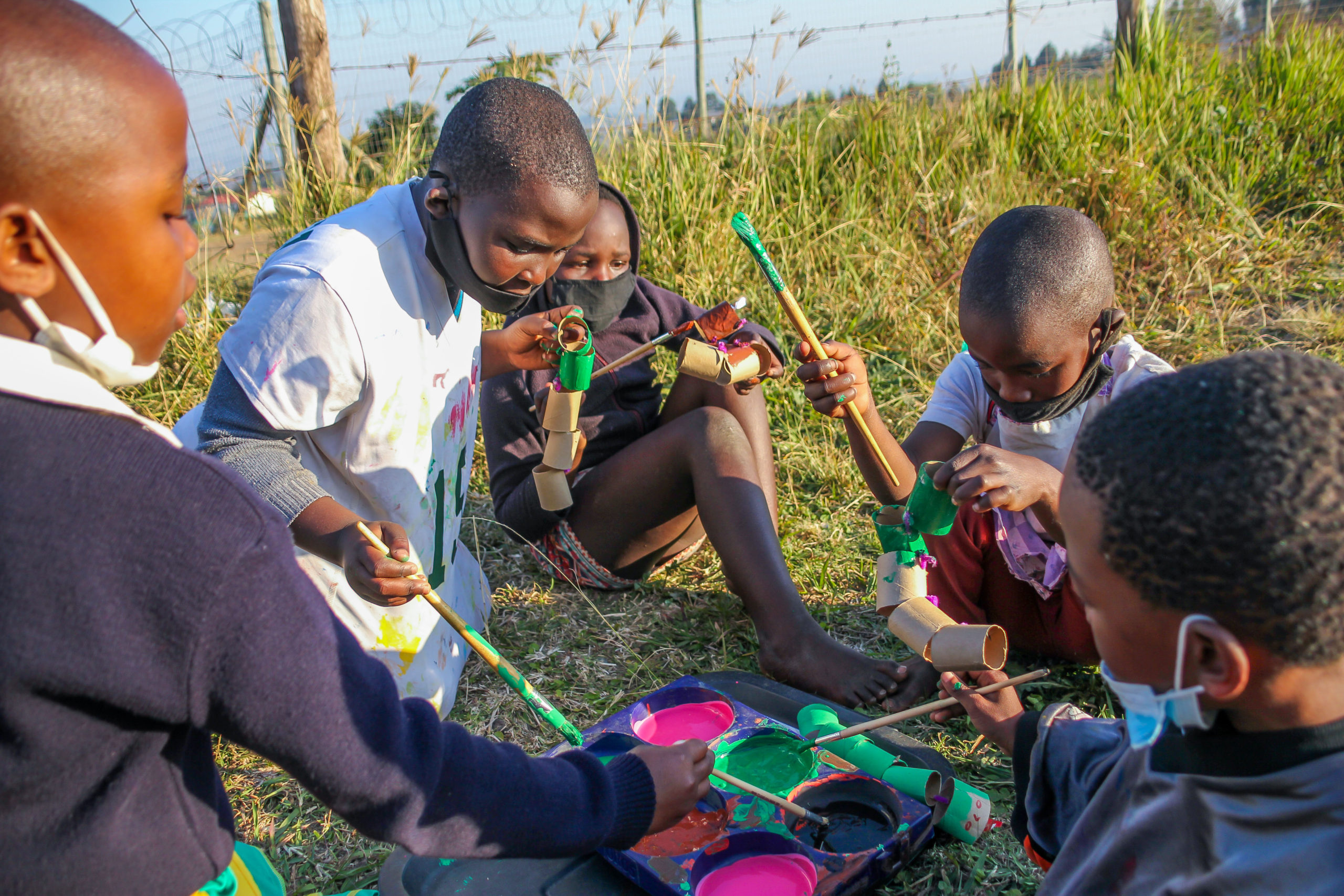
Nokubonga, the Programme Manager, tells us a little bit about how she sees Thandukwazi: “In Thandukwazi we want children to learn and understand that they have a role to play in the community. We want them to know that they can be great individuals who are proud of themselves.”
Pre-pandemic, our After-school sessions for Grade R to 3’s, took place in the local school classrooms after the end of the regular school day. The sessions help children develop essential life skills and learn about the world around them through fun, hands-on learning activities, including stories, art, numeracy activities, discussions, science experiments, music discovery walks and games.
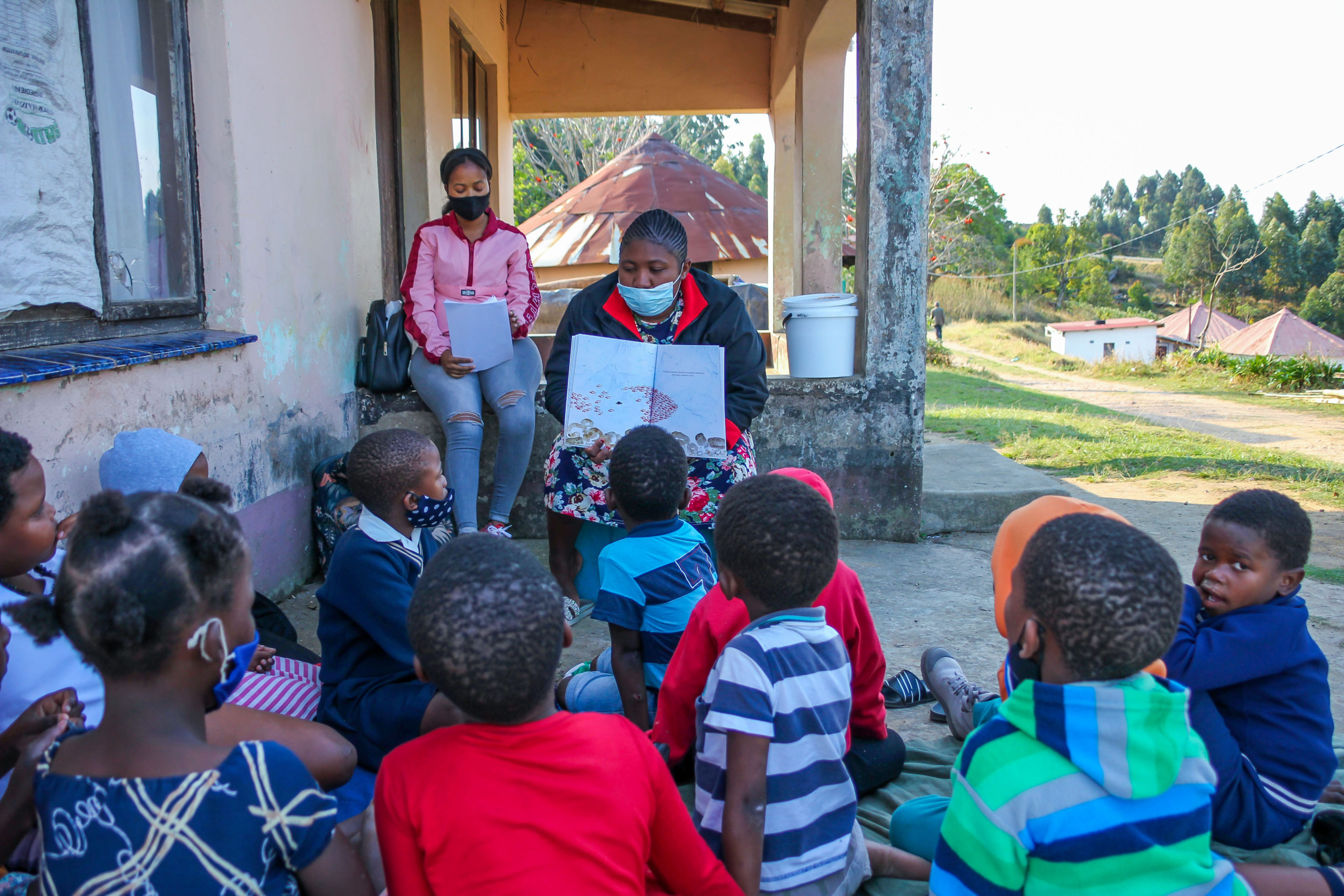
In September 2020, we shifted to our Thandukwazi Outdoor Programme, meaning sessions are outside of the classroom – and also outside in the open air. The Thandukwazi Outdoor Programme consists of smaller neighbourhood based learning groups, participating in our proprietary After-school curriculum. This initial intention was to minimize the risk of spreading Covid-19 whilst bringing children quality education, but additional benefits, like the strengthening of the bonds between Thanda and the communities we serve have surprised us all, and have been mighty beneficial for the children in our programmes.
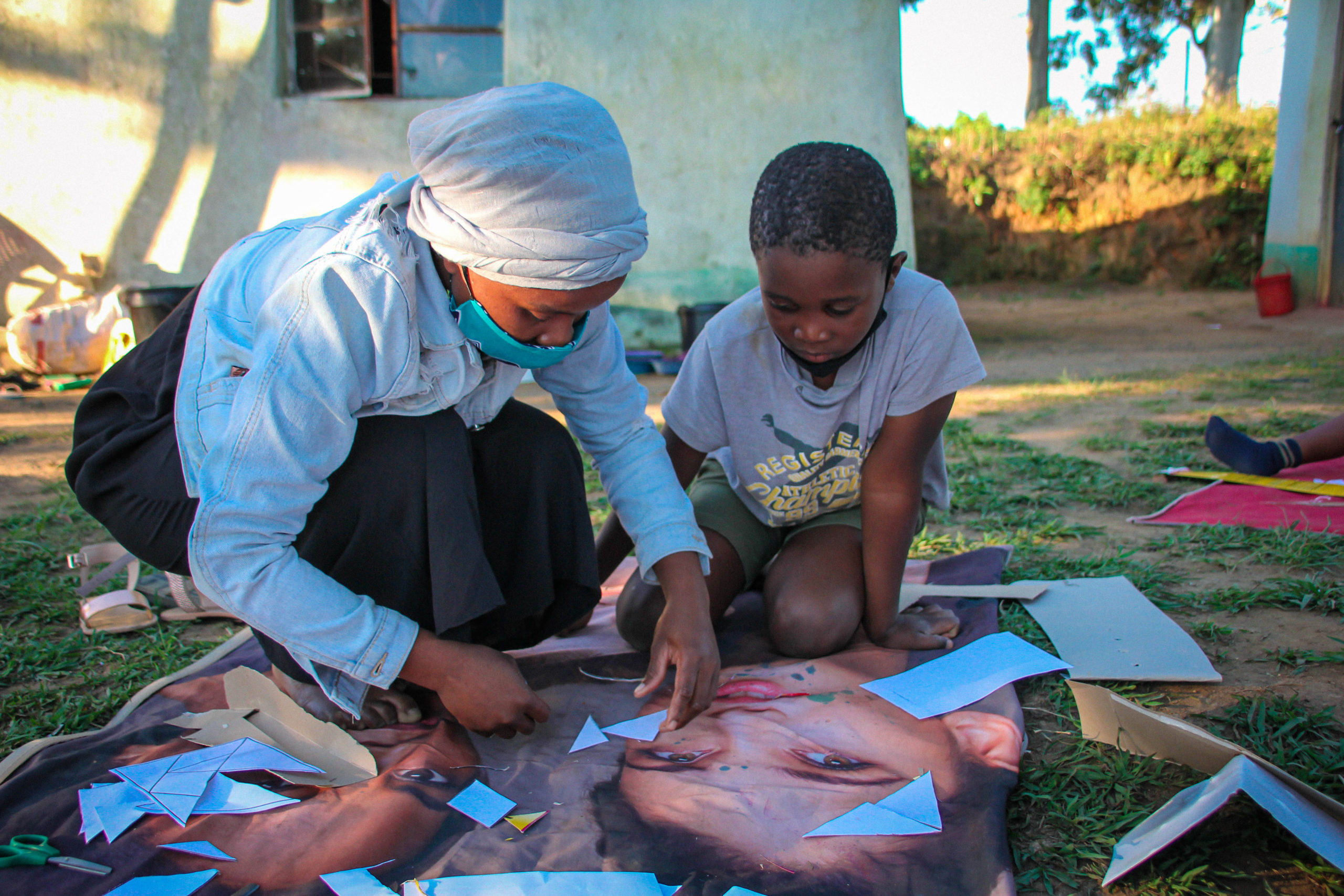
Nokubonga has seen changes in the children who have attended Thandukwazi and Thandukwazi Outdoor Programmes:
“I have seen changes in children when I was still facilitating Thandukwazi. One child has a cognitive disability and cannot learn as quickly as the other children. In the community that we work in, there is a lot of stigma attached to people that have disabilities. People would always give this child special attention and exclude them from certain classroom activities. The child started to resent his classmates and teachers and started misbehaving. He never spoke, but when he did speak, he’d be rude, throwing insults to the point that his peers were afraid of him. Through the Thandukwazi programme and activities, I was able to make him feel a part of the group. ‘I can’t write, I can’t draw’, he’d tell me, and I wanted to hear none of that. I encouraged him to participate and do the best he could. He’s now in grade 3 and is doing well and has developed social skills.”
Our Literacy Programme, which forms part of Thandukwazi, addresses precisely the challenge that Nokubonga describes.
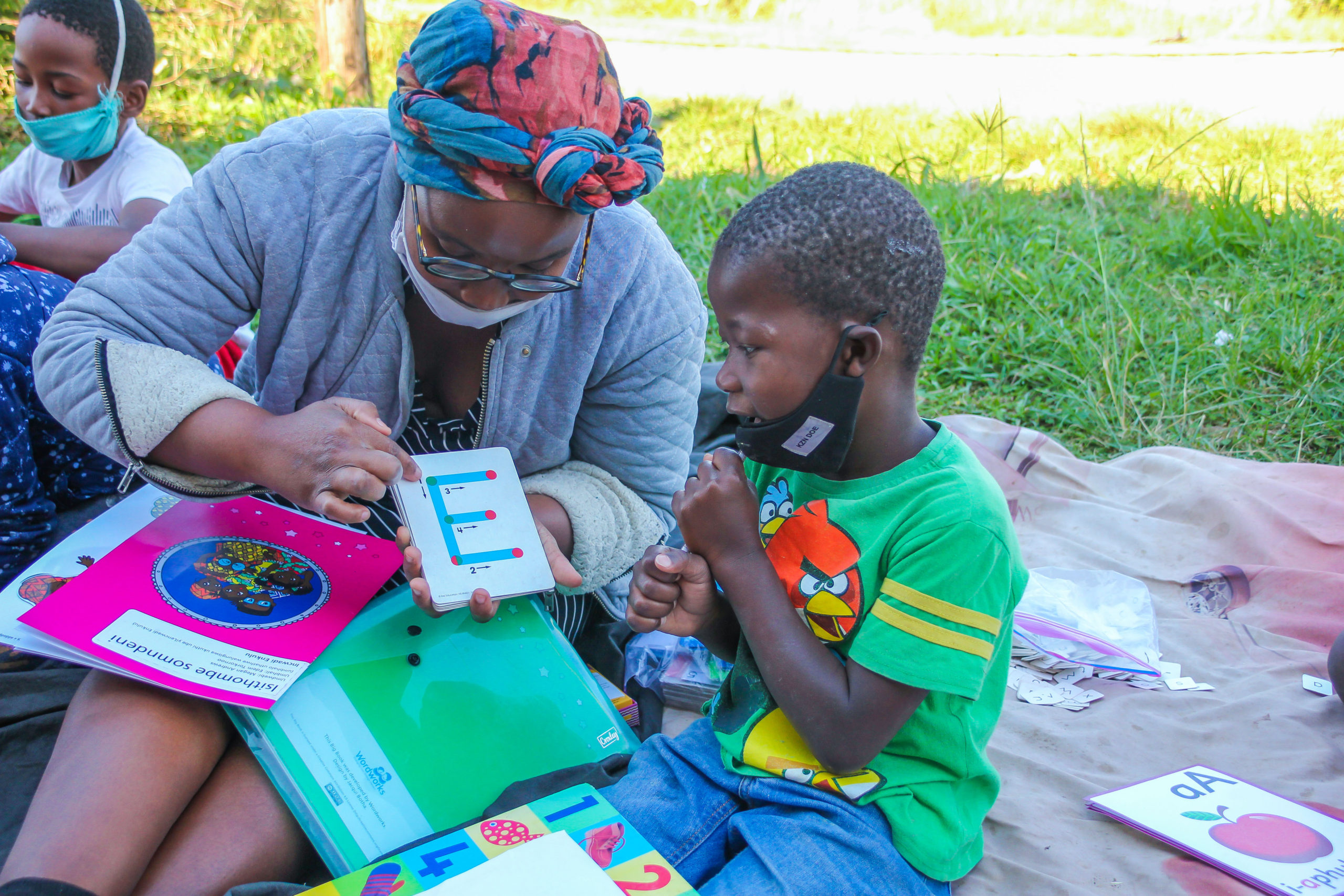
The programme began during the pandemic when it became clear that some children were falling behind with reading and writing. We consulted with experts in the field (like Siyakwazi and WordWorks) and gathered resources. Then, in March 2021, we welcomed our first enrollees to the Literacy Programme which takes place in the neighbourhood before Thandukwazi begins. This programme helps children from Grade R – 3 develop technical literacy skills like phonics and spelling – in isiZulu!
Looking forward, Nokubonga has clear hopes for Thandukwazi Outdoor Programme and the Literacy Programme. She shares “My hopes and dreams for the programme are growth but also to consistently overcome challenges. For example, helping guardians understand that learning does not only stop in school or at Thanda. The mentality in the community is that parents believe that teaching their children and facilitating their development is not their role or responsibility. I would love this to change throughout the whole community. I would like parents and guardians to relook at the roles they can play in their children’s lives.”
